Combination Sewer Cleaners
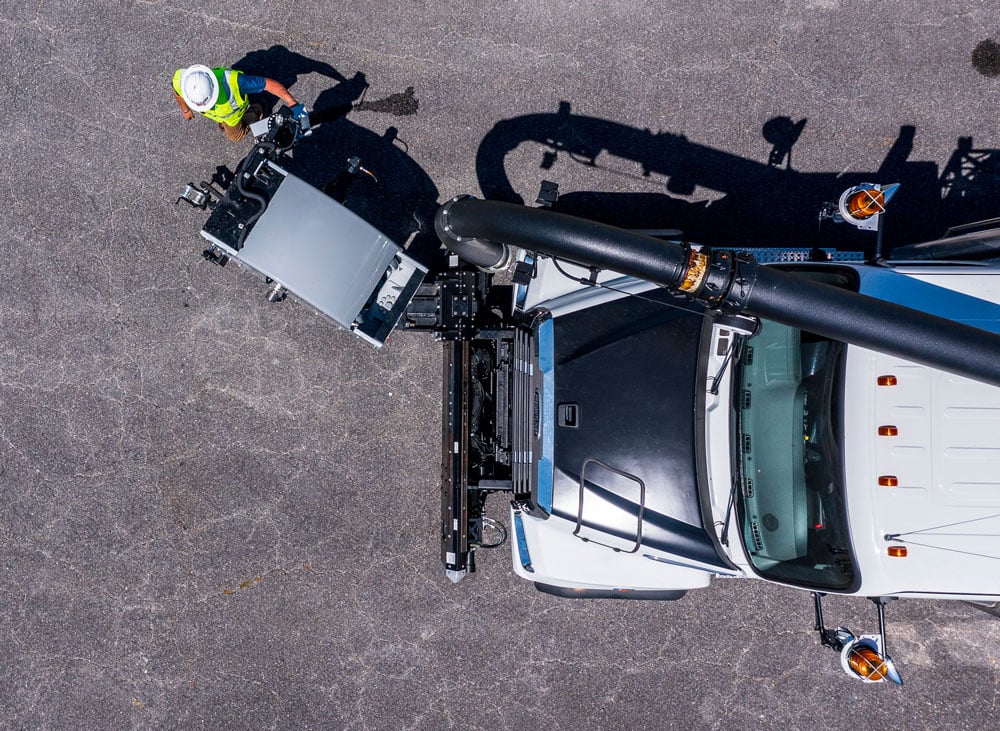
The Innovators Behind Operator Satisfaction
At Vac•Con we offer a wide range of heavy-duty combination machines, including both single and dual engine configurations. Our machines work by seamlessly combining water excavation and vacuum loader systems to provide the best value without compromising performance, power, or ease of operation.
The DNA of Vac•Con Combo Machines
Vacuum
At the heart of our combination machines, Vac•Con has perfected the vacuum system. We offer positive displacement blowers and fan configurations to meet any requirement or application.
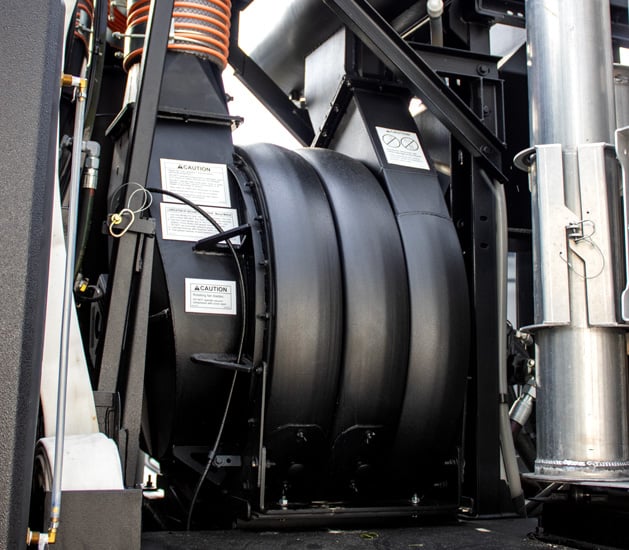
Water
Capacity and power are the most important factors regarding water for combination machines. We offer a range of water tank capacities and jetting settings specifically tailored for the applications of every unit. We also understand the importance of reusing water and offer the most reliable, highest performing water recycling system on the market.
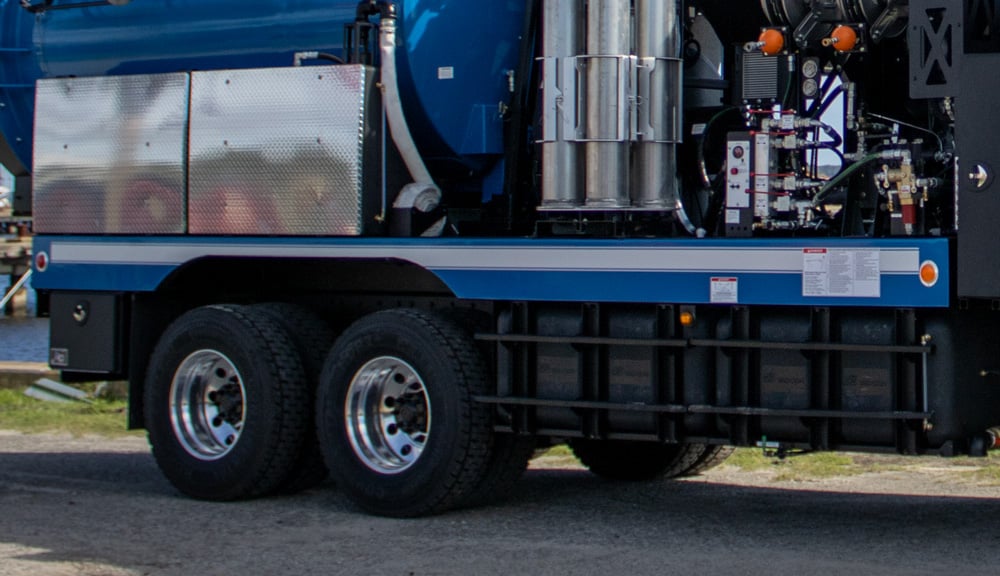
Payload
Bringing value and efficiency to our customers’ operations is the mission of our equipment. For that reason, we offer a range of debris tank sizes and will work with you to custom configure a machine that legally meets your payload expectations.
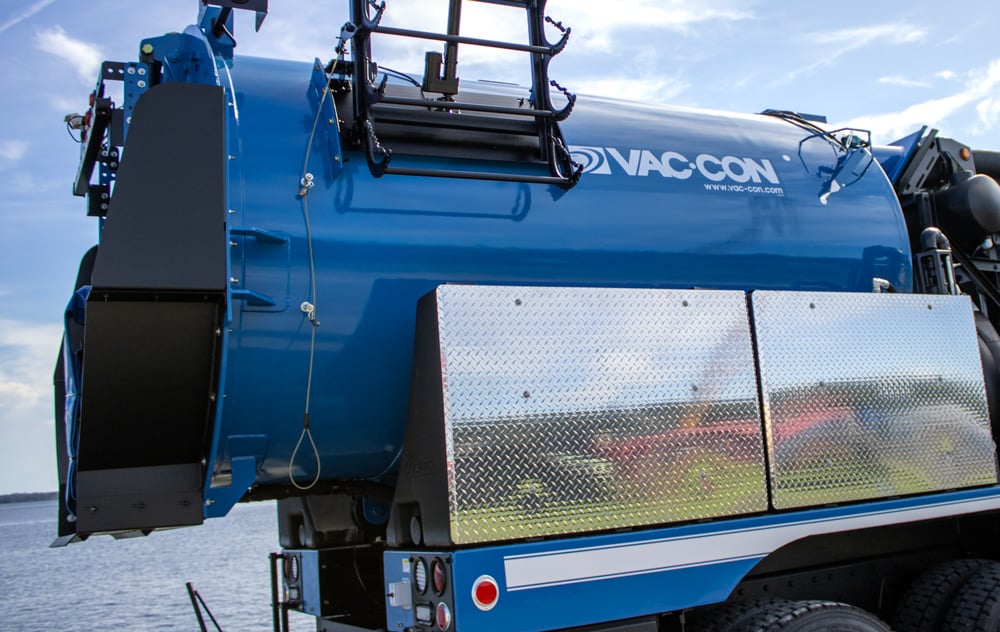
Filtration
If the heart of our machines is the vacuum, then the circulatory system is filtration. To offer the most reliable, highest performing machines on the market, we have engineered filtration systems that effectively collect and separate particles before they can reach the vacuum system. In addition, we promote wet/vac operations to reduce dust production, extending the life of the vacuum system.
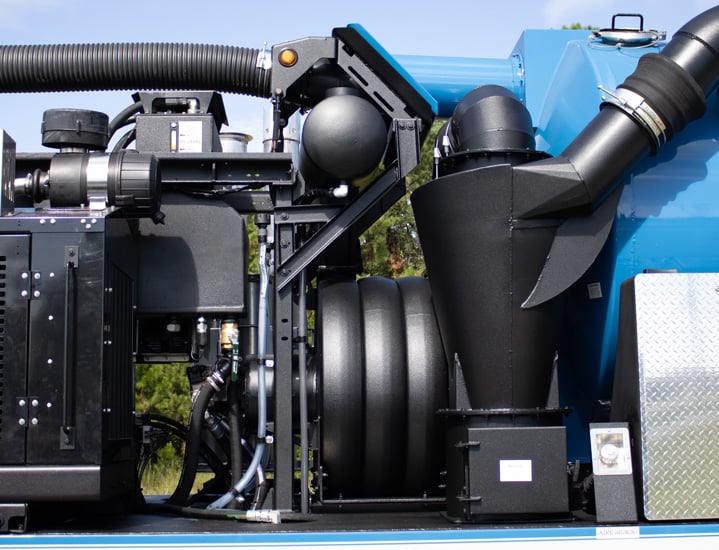
Operation
We know a machine is idle without an operator. For this reason, we prioritize improving operator efficiencies and ease-of-use across all our product lines. We’re proud to be the innovators of some of the most user-friendly components on the market.
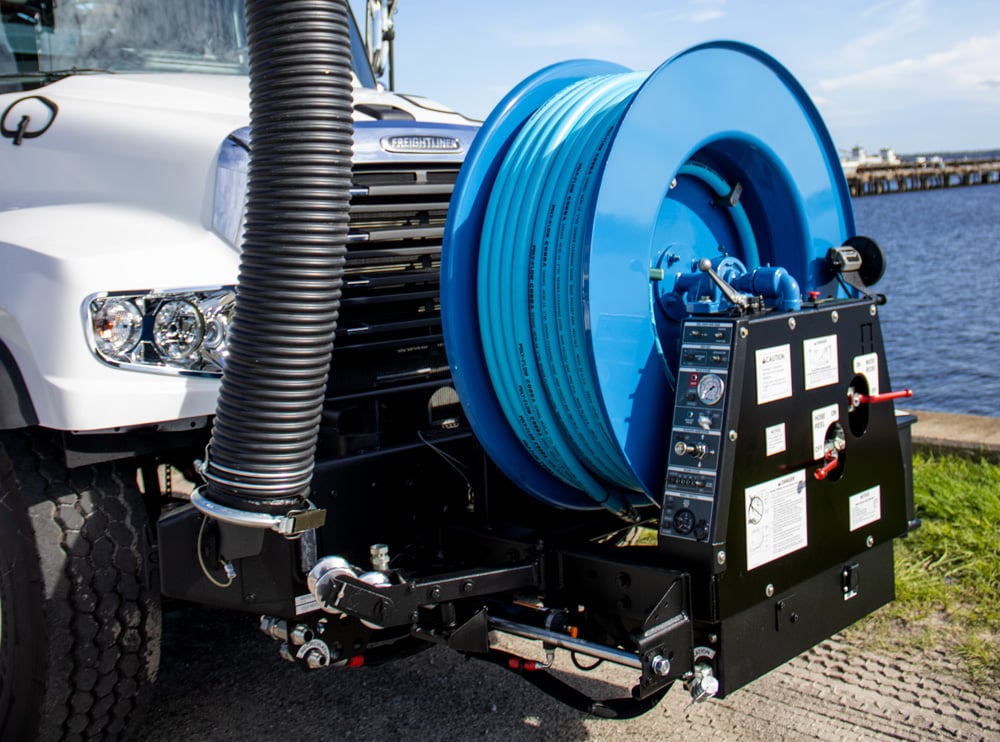
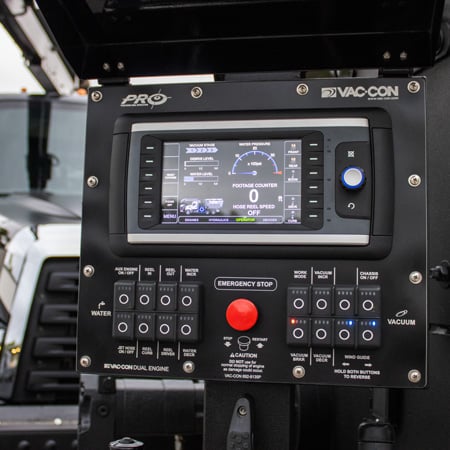
PRO Reel
This revolutionary, patent-pending hose reel is like nothing ever before seen in the market. Operators will find the controls to be easy and conveniently adjustable to various heights and angles. There are no other products that compete against the PRO Reel on the market!
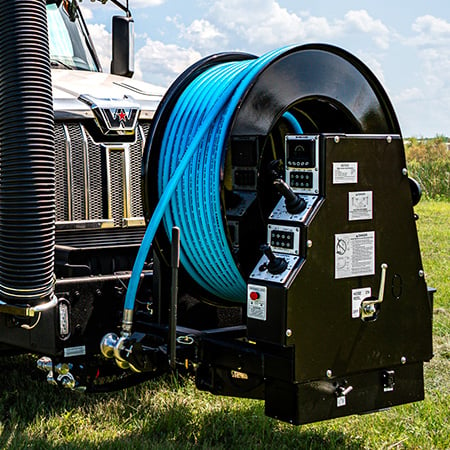
Articulating Hose Reel
Vac•Con was the first to develop the standard articulating hose reel, which articulates 180 degrees towards the driver’s side of the cab. A hydraulically operated outrigger leg provides additional stability and support to the system. A standard configuration that’s proven and trusted by operators in the field!
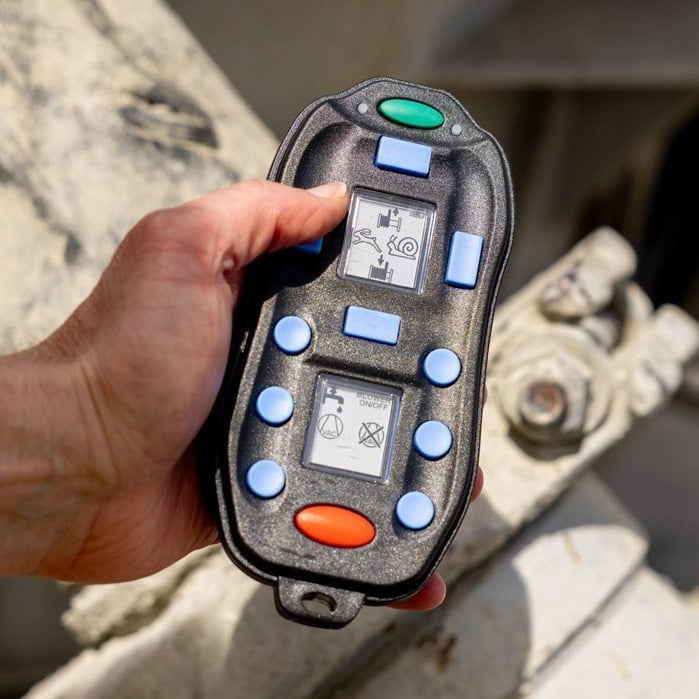
Wireless Operation
All Vac•Con machines are available with wireless remote-control operations, increasing operator efficiency and unit ease-of-use. Our wireless remotes offer operation at an extreme range and are designed to withstand the harshest conditions, water, dirt, and debris. An integrated battery ensures that your power source is protected from the elements and recharges by magnetics on your machine.
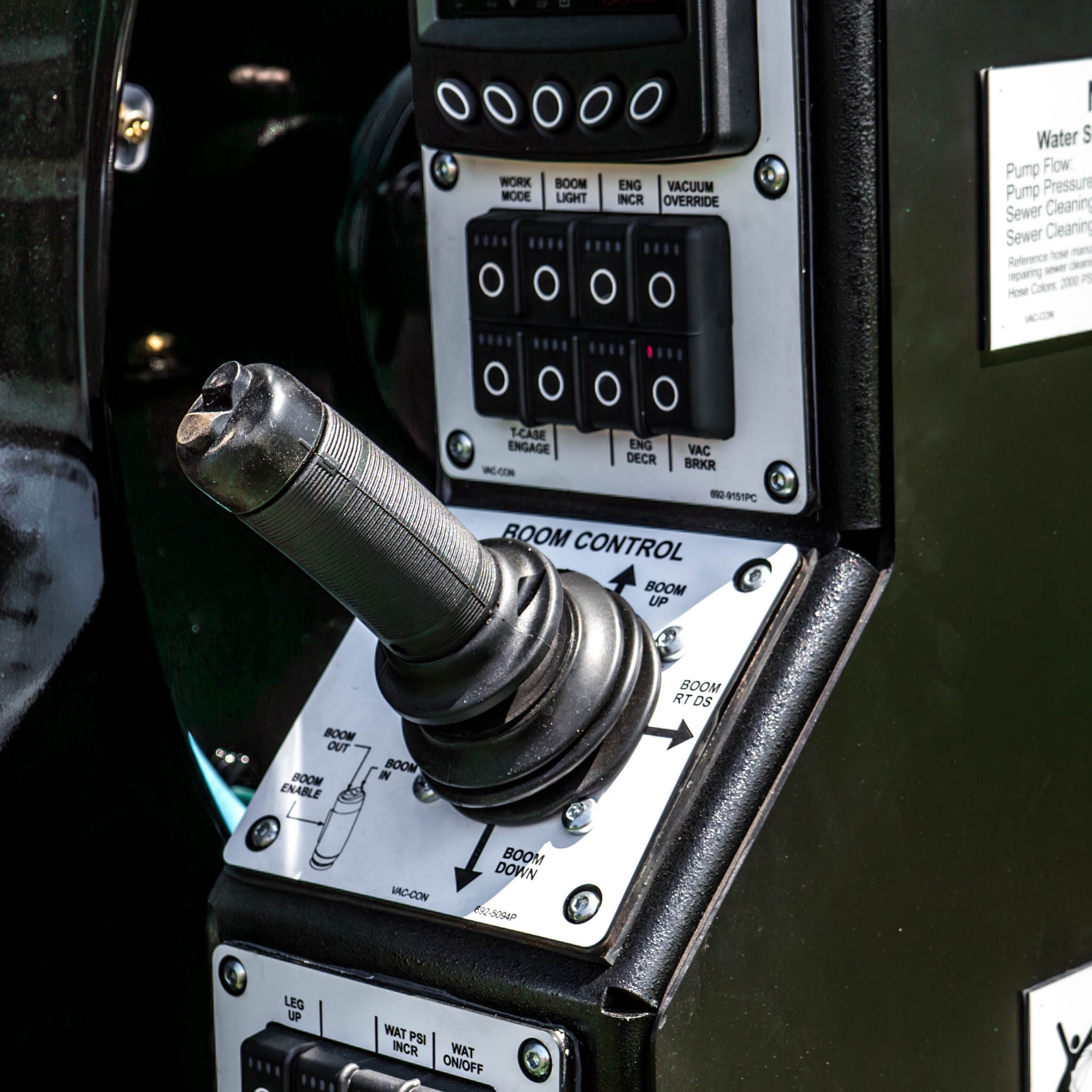
T-Case Engagement
This feature is located on the front of the hose reel and allows operators to start and stop the engine as well as engage and disengage the transfer case in one convenient location. Operators no longer need to return to the cab and add extra steps to the process to get their work started.
Explore Our Combination Machine Lineup
Vac•Con combination machines utilize high-pressure water and powerful vacuum systems to clean sanitary and storm drain lines. These units are versatile and unique, with the Vac•Con portfolio offering a range of unit features and option content.


.jpg?width=1000&height=666&name=Combo_DE_PassengerSide-(2).jpg)



